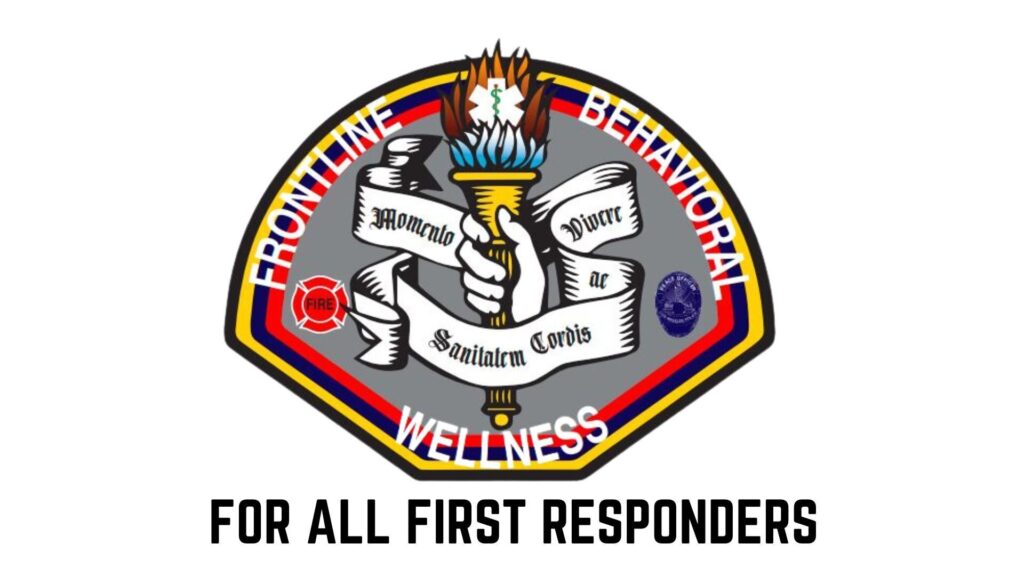Intensive Outpatient Program
For First Responders In Costa Mesa
It’s Our Turn to Respond
EMTs, paramedics, firefighters, police officers, and other first responders never know what their workday will bring. Dealing with dangerous, life-threatening situations and high levels of trauma daily puts them under tremendous stress, which can significantly impact their mental health.
The Substance Abuse and Mental Health Administration estimates that nearly 30 percent of first responders develop a mental health condition. At Frontline Behavioral Wellness, we know the risks associated with first-response careers, and so we want to help those who dedicate their lives to saving others.

Why Come To Our First Responder IOP
At Frontline Behavior Wellness, we specialize in first responder wellness. Our team of skilled professionals has extensive experience and training in providing first responders with the mental health care they need and deserve.
Acceptance and Understanding
We understand the culture surrounding first responders and work to break the stigma surrounding mental health treatment for first responders. At Frontline Behavior Wellness, we realize that asking for help can be difficult for many first responders.
Personal Bonds
Our team strives to build trust and break down barriers that can impede treatment. Our extensive experience treating first responders and public safety employees gives us a deep understanding of the occupational-related mental issues experienced by first responders. This experience enables us to build strong relationships with our clients to ensure they feel understood.
Treatment Tailored to You
Everyone has different needs, and at Frontline Behavior Wellness, we understand that first responders have commitments. Therefore, our intensive outpatient program is customized to meet each client's individual needs.
Programs on Your Schedule
First responders can choose how often they want to come in for treatment. Structured treatments offer first responders treatment sessions several times a week, while flexible treatment allows for treatment frequency of as little as once per week.
Safe and You-Focused
At Frontline Behavior Wellness, we work with first responders to ensure their treatment experience is safe and comfortable. Additionally, our team provides first responders who participate in our intensive outpatient program the support they need to handle the various mental challenges they face in their occupation.
What Our IOP Includes
At Frontline Behavior Wellness, we specialize in first responder wellness. Our team of skilled professionals has extensive experience and training in providing first responders with the mental health care they need and deserve.
Our IOP treatment teaches first responders about their conditions and how to recognize the symptoms of their disease. In addition, we utilize several proven effective therapies that help first responders better understand themselves while learning new coping skills.
Psychotherapy, or talk therapy, is an effective treatment for a variety of mental illnesses and emotional difficulties. The sessions involve discussing a problem with a mental health professional and focus on relaxation exercises, coping skills, and stress management techniques. Psychotherapy is a way to help first responders eliminate or control troubling symptoms so they can function better, improve well-being, and heal.
There are several types of psychotherapy, and some work better for some conditions. Psychotherapy may be short-term, lasting only a few sessions, or long-term to deal with longstanding and complex issues. Treatment goals and frequency of treatment are flexible and agreed upon by the patient and therapist.
Research shows that psychotherapy is an effective treatment for a variety of mental issues, including:
- Difficulties coping with daily life
- The impact of trauma
- Medical illness
- Significant loss, such as the death of a loved one
- Depression
- Anxiety
Data shows that nearly 75 percent of people who enter psychotherapy report some benefit, and most people receive relief from their symptoms and are better able to function. Psychotherapy can improve emotions and behaviors and is linked with positive changes in the brain and body that promote healing.
Psychotherapy is often used in combination with medication or other therapies to treat mental health conditions. For many people, a combination of medication and psychotherapy treatment is more effective than either alone.
Traumatic experiences leave a deep and permanent imprint on the mind. The effects may appear immediately or take years, but symptoms may include unpredictable emotions, flashbacks, strained personal relationships, and physical symptoms such as headaches or nausea. While these symptoms are a normal response, some people have difficulty moving on with their lives, and trauma therapy can help them find ways of managing their emotions and heal.
Trauma changes your brain and nervous system, causing dysregulation and symptoms including depression and anxiety. Trauma therapies help people integrate and understand traumatic events, enabling their minds and body to heal. The memory of the traumatic event remains, but it begins to lose power over the person and their emotions. Since trauma is a common element of mental health issues for first responders, along with other therapeutic techniques, we provide trauma-informed care.
Conditions We Treat in Costa Mesa
Frontline Behavior Wellness’s intensive outpatient program treatment in costa mesa provides effective treatment for a variety of mental conditions experienced by first responders, including:
- PTSI
- Depression
- Anxiety Disorders
- Dual Diagnosis
- Suicide Ideation
We Stand With First Responders
Our nation’s first responders are modern-day heroes. They remind us that the thing that makes our country great is good people willing to selflessly put themselves in harm’s way to protect the innocent.
At Frontline Behavior Wellness, we stand with our first responders and are committed to providing them with the high-quality mental health care they deserve.
Recover in Costa Mesa With Frontline Behavioral Wellness
First responders endure high-stress levels and are exposed to traumatic situations frequently as part of their job. While they provide an invaluable service to the community, it often affects their mental health.
At Frontline Behavior Wellness, we are committed to providing our first responders with treatments and resources to help them on the path to healing. Contact us today to learn more about intensive outpatient program treatment in Costa Mesa from Frontline Behavior Wellness.


Reach Out Today
To learn more about if Acera Health is right for you, and what to expect, contact us Today!
"*" indicates required fields
3100 Bristol St. Suite # 250 Costa Mesa, CA 92626
info@acerahealth.com
DHCS license number: MHBT220400
DHCS license expiration date: July 20, 2024
DSS license number: 306006131 & 306006072



